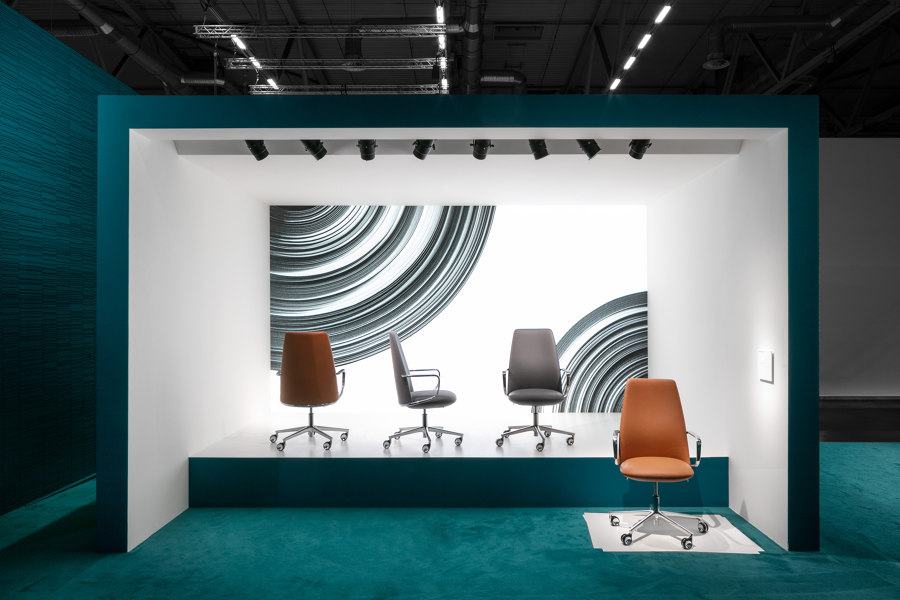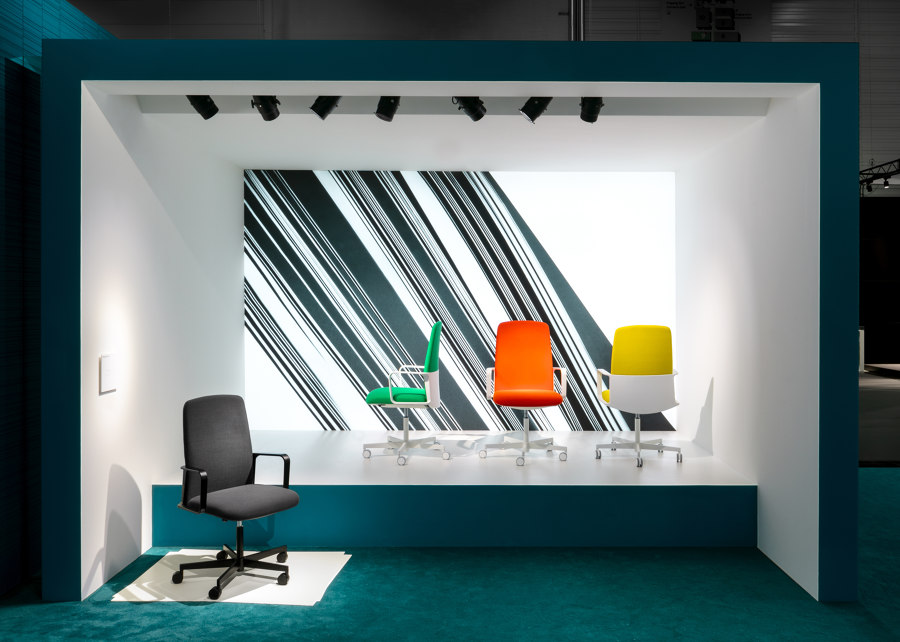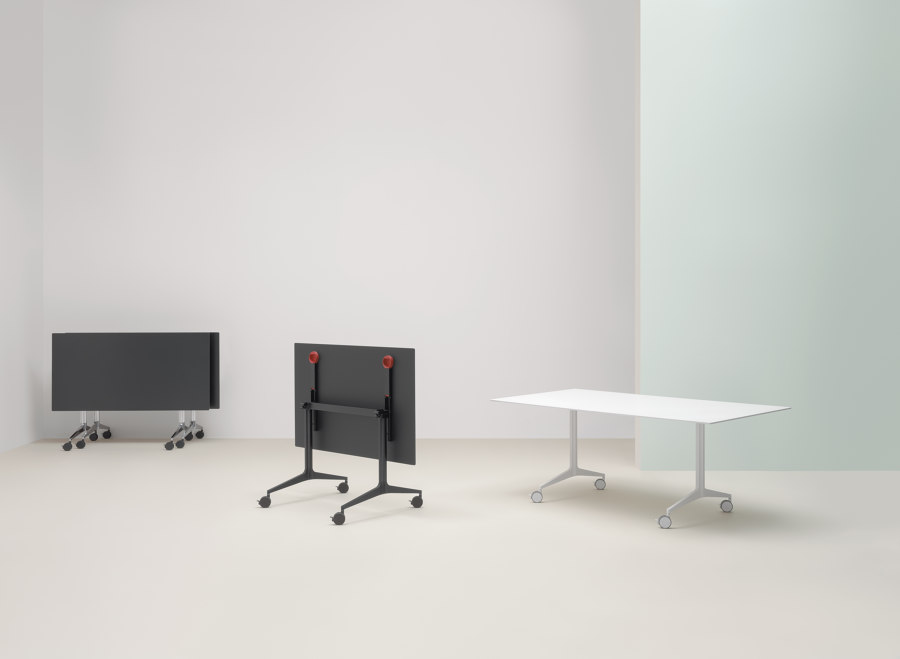Office affairs: Pedrali
Storia del Marchio di Simon Keane-Cowell
MORNICO AL SERIO (BG), Italia
13.11.18
Italian brand PEDRALI, known for its expertise in industrial production, turns the prosaic into the poetic with its first-ever, aesthetically charged collection office and workspace furniture.
They say we form emotional relationships over time with the objects around us. I agree. If, God forbid, I were to be burgled or my apartment building were to burn down, there are definitely a number of furniture pieces that I’d miss desperately. We have a history.
But how much do you love your office chair? Enough to lug it out of a burning building? I’m guessing the answer is no. And for good reason. Even those of us lucky enough to enjoy major job satisfaction probably don’t feel that strongly about the ultra-utilitarian and often soulless task furniture that we use during the working week – precisely because it wears its utility so emphatically on its sleeve. When it comes to office-furniture design, we’re squarely in the land of the prosaic as opposed to the poetic.
This year’s edition of Orgatec saw premium Italian manufacturer Pedrali present their inaugural collection of products developed specifically for work environments
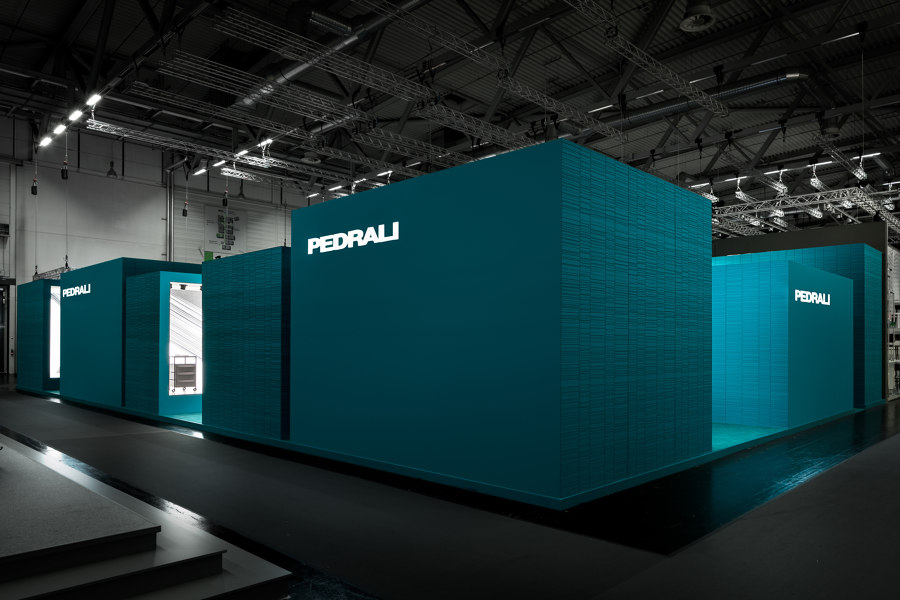
This year’s edition of Orgatec saw premium Italian manufacturer Pedrali present their inaugural collection of products developed specifically for work environments
×Yet, there’s a brand that’s determined to add poetry to function when it comes to work spaces. Under the banner of “new visions of work”, major Italian manufacturing player Pedrali took to the stage at this year’s edition of Orgatec with their first-ever collection of products developed specifically for the world of work – for use in both the office and in the home. Displaying the strong aesthetic expression and top-notch industrial engineering we’ve come to expect from the company, this is anything but your derivative, same-same-but-different office-furniture fare.
With its smart mechanics concealed, architect Claudio Bellini's new Elinor executive chair for Pedrali takes on an aesthetically uncompromised, almost sculptural quality
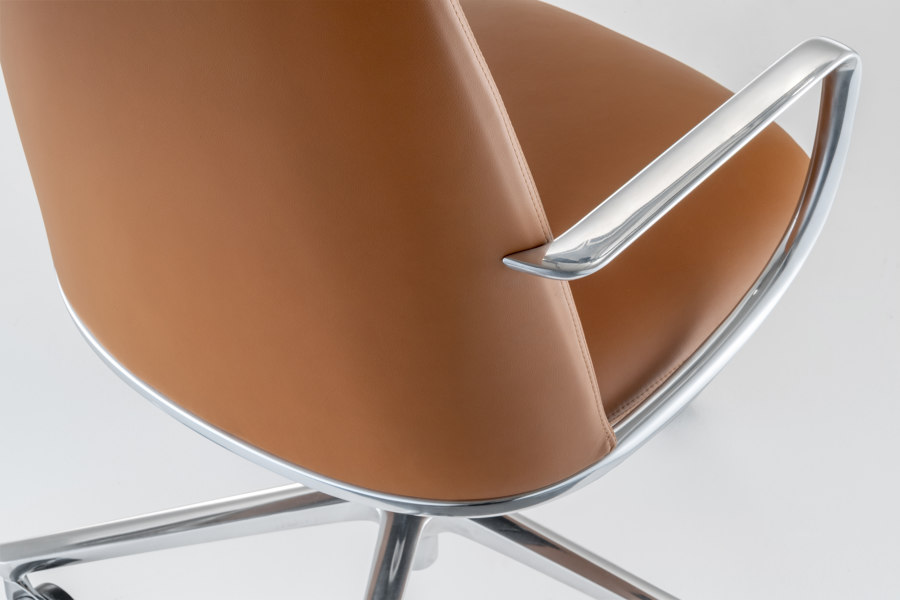
With its smart mechanics concealed, architect Claudio Bellini's new Elinor executive chair for Pedrali takes on an aesthetically uncompromised, almost sculptural quality
×Presented against the backdrop, so to speak, of a stand designed by award-winning Milanese architectural office Studio Calvi Brambilla, which saw paper (a reference to the universal, blank sheet of white A4) used as an architectural element, five new products were given their world premiere – each addressing the evolution of work spaces as dynamic, flexible environments that serve to promote creativity and wellbeing among their users.
“A chair has a very intimate relation with the body, more than any other furniture type,” explains respected Milan-based architect Claudio Bellini, designer of Pedrali’s new Elinor executive chair. “Which is why this new design’s smart mechanics are completely concealed. So the chair takes on a true sculptural quality, rather than focusing on displaying its ergonomy.”
Jorge Pensi Design Studio's Temps executive chair features a polypropylene shell that connects base and seat with back, lending the design an optical lightness
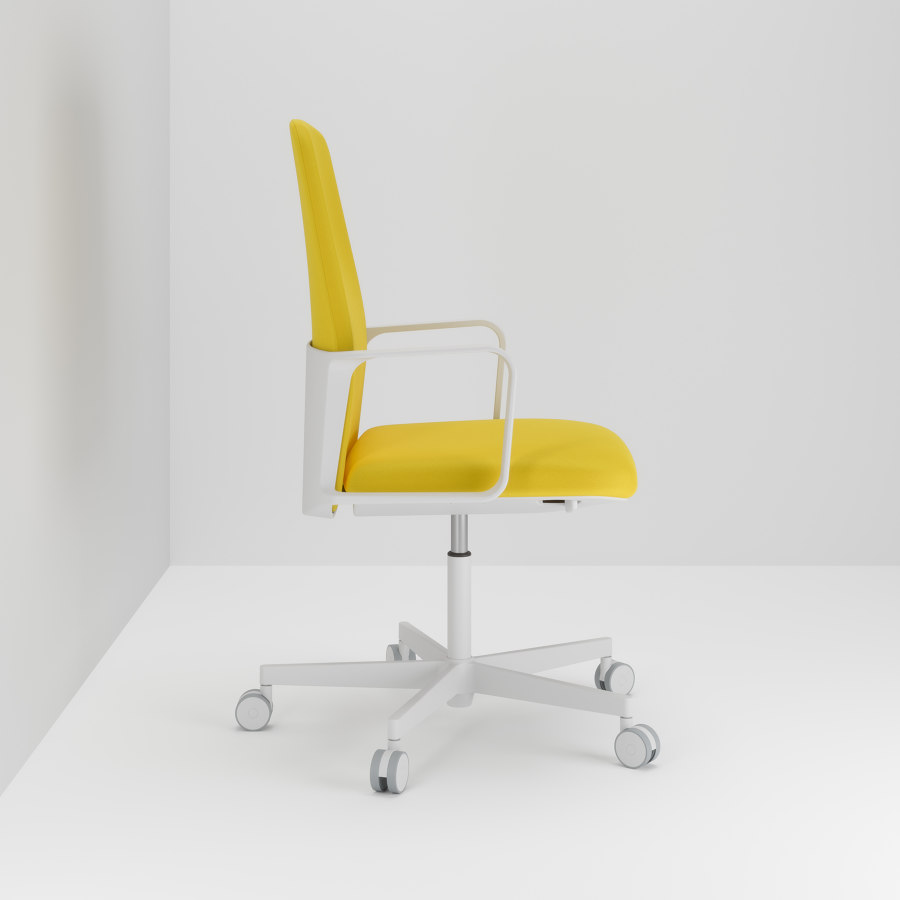
Jorge Pensi Design Studio's Temps executive chair features a polypropylene shell that connects base and seat with back, lending the design an optical lightness
×Named after the late Elinor Ostrom, the first woman to win the Nobel Prize for Economics, and featuring a smooth-as-anything, weight-activated synchro-tilt mechanism, the chair’s form seems almost to hug the body, which, along with its refined, friendly optics and high tactile quality, work hard to produce a deep sense of wellbeing in the user while he or she works hard. Polished die-cast armrests, meanwhile, swoop down and around the back of the chair, forming a kind of embrace. Work may sometimes be tough, but this is all about looking and feeling good.
A second executive chair, this time designed by Jorge Pensi Design Studio also delivers the goods on the aesthetic and ergonomic front. Called Temps, it also features a height-adjustable, die-cast-aluminium base and synchro-tilt mechanism, but, with a polypropylene pelvis, as it were, that connects base and seat with back and which provides armrests, it possesses an even greater visual lightness.
Top: A new tilting and stackable version of Pedrali's Ypsilon table comes courtesy of Jorge Pensi Design Studio. Above: Pio & Tito Toso's freestanding Ray coat stand invites users to come closer with its expressively shaped, ash-plywood arms
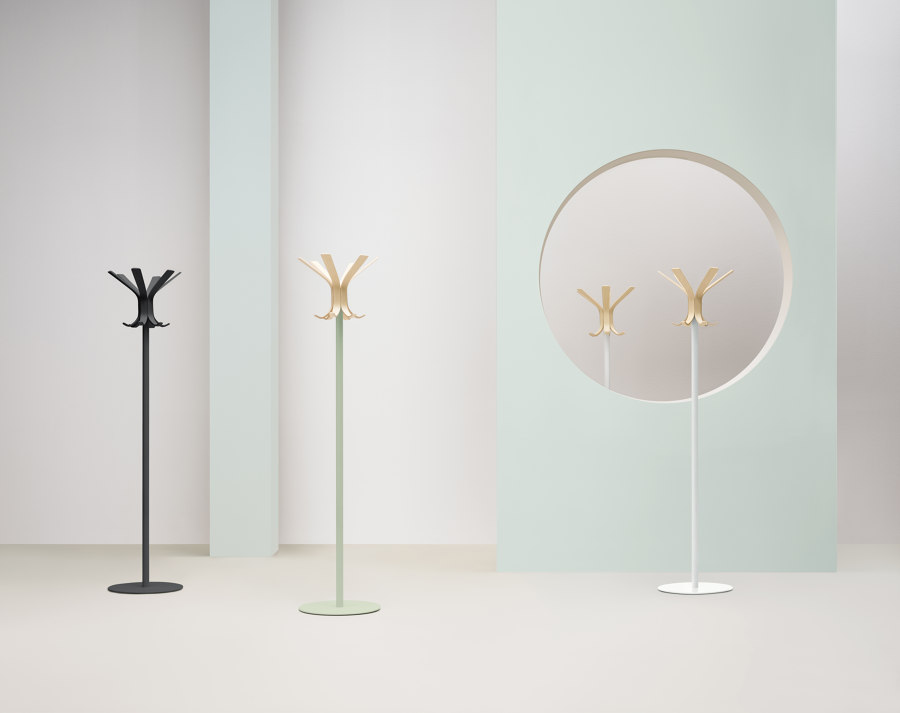
Top: A new tilting and stackable version of Pedrali's Ypsilon table comes courtesy of Jorge Pensi Design Studio. Above: Pio & Tito Toso's freestanding Ray coat stand invites users to come closer with its expressively shaped, ash-plywood arms
×Highly considered aesthetics continue with Jorge Pensi Design Studio’s new tilting and stackable version of their Ypsilon table, whose versatility responds to the increasingly dynamic, fluid and collaborative nature of work. At turns a workstation, a meeting table and a co-working surface, the new Ypsilon’s unique, patented mechanism allows its top to be flipped up into a vertical position for space-saving storage when not in use. With silent opening and closing, of course. What else?
Formally reduced, the appropriately named Boxie system – designed by Design Claudio Dondoli and Marco Pocci – provides mobile storage for flexible work spaces, thanks to its swivelling and lockable wheels
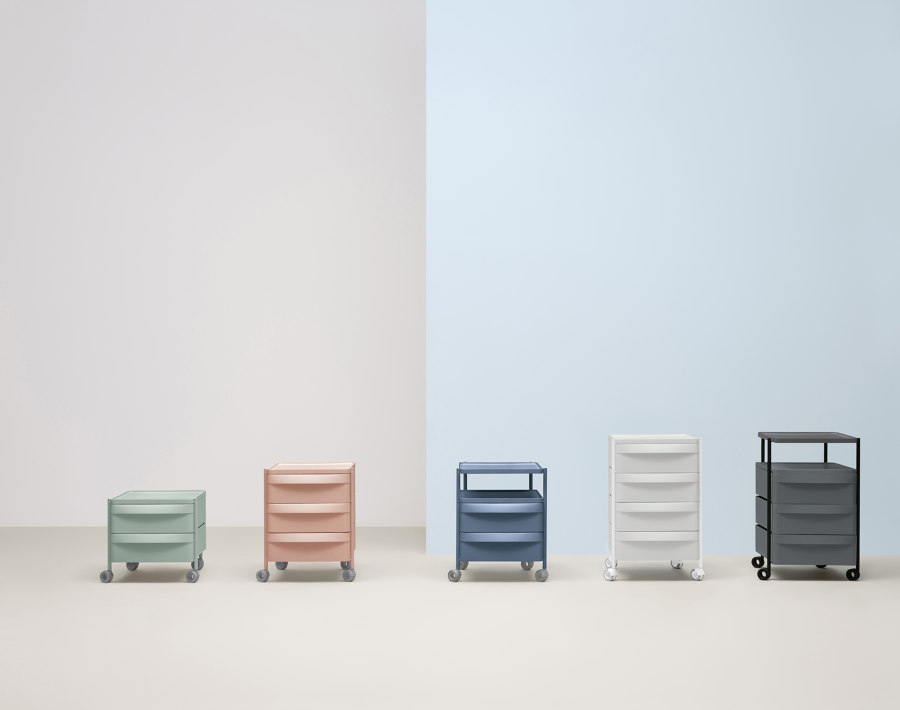
Formally reduced, the appropriately named Boxie system – designed by Design Claudio Dondoli and Marco Pocci – provides mobile storage for flexible work spaces, thanks to its swivelling and lockable wheels
×Mobile storage in the shape of the formally reduced and aptly named Boxie system and the freestanding, materially welcoming Ray coat stand complete this new team of product co-workers. Authored by Design Claudio Dondoli and Marco Pocci, the clean-lined Boxie – comprising a steel frame and polypropylene drawers and top – can deployed anywhere in an instant, thanks to its swivelling, lockable wheels, while the coat stand, designed by Pio & Tito Toso, possesses expressive, ash-plywood arms that beckon users to come closer.
Forget dating apps. Pedrali are bringing love back into the office.
© Architonic



